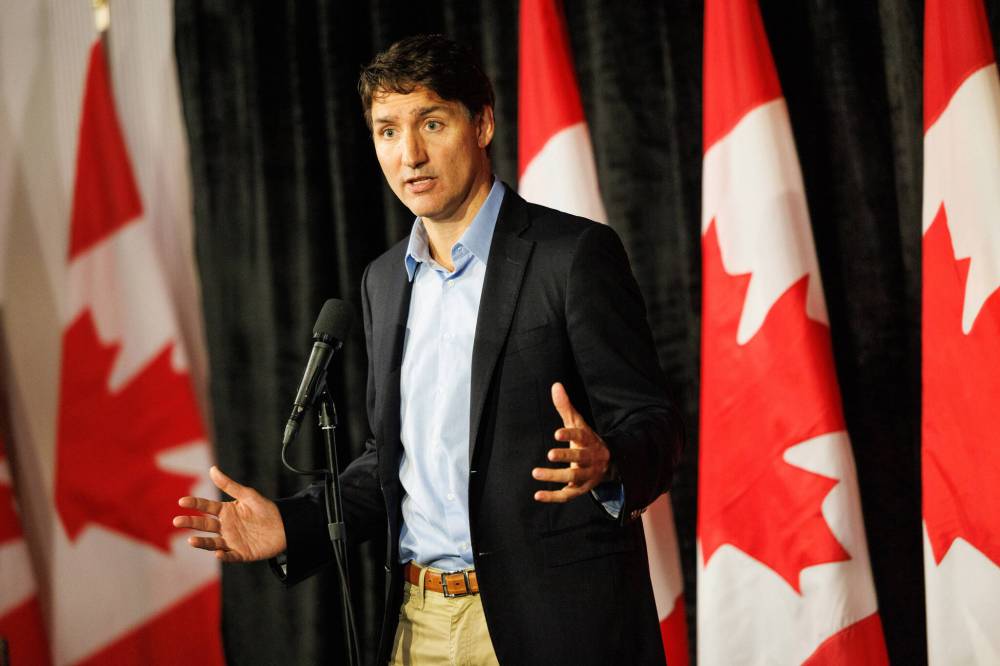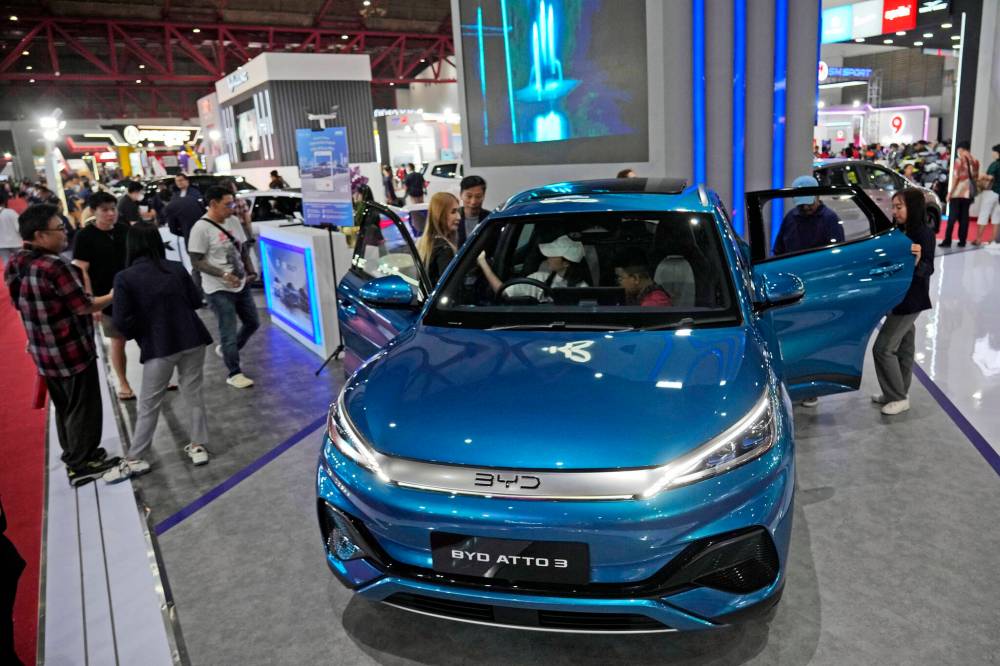In a desperate bid to boost his popularity, Prime Minister Justin Trudeau has turned to an odd strategy: he announced harsh new levies against Chinese-made electric vehicles.
It might not seem obvious why tariffs on Chinese EVs would be connected to Trudeau’s efforts to rebuild political support but the more you look at tariffs, the more you realize the benefits are less economic than political.
Trudeau has argued the 100 per cent surcharge he announced on Chinese EVs as of Oct. 1 — which would double their cost — is necessary to protect the burgeoning EV industry in Canada.

“Actors like China have chosen to give themselves an unfair advantage in the global marketplace, compromising the security of our critical industries and displacing dedicated Canadian auto and metal workers. So, we’re taking action to address that,” Trudeau told reporters Monday.
Trudeau is not wrong when he points out that China and its low-wage economy has an unfair advantage when it comes to many manufactured goods. However, Trudeau is wrong to assume that tariffs will protect Canadian industries and jobs. One need only look to the United States for evidence.
Republican presidential nominee Donald Trump is again threatening to impose severe tariffs on Chinese goods, just as he did back in 2018 when he was president. Then, he applied levies on everything from solar panels to washing machines and metals.
U.S. President Joe Biden has carved out his own policy on tariffs, putting a 100 per cent duty on EVs and a 50 per cent levy on semi-conductors and solar cells. Vice-President Kamala Harris, the Democratic presidential nominee, has indicated her support for that policy.
Even as the Republicans and Democrats try to one-up each other on tariffs, research showed Trump’s original tariffs did not create more jobs in the U.S. but did make all sorts of things more expensive for American consumers.
Research by the U.S. Council on Foreign Relations found the tariffs hammered Americans, triggering US$48 billion in price increases on various goods.
More recently, a paper released in January by the National Bureau of Economic Research found Trump’s tariffs did not protect or increase the number of American jobs in the affected industries.
Adding to the misery was the fact that Trump’s tariffs triggered retaliatory penalties on U.S.-made exports that made these products more expensive and, ironically, led to job losses in the U.S. In addition, the Trump administration was forced to ante up US$23 billion to support agricultural industries that had been hammered by retaliatory trade measures abroad.
This has given the American public a bit of a split personality on Chinese tariffs.
Polls show most Americans believe tariffs threaten U.S. jobs and make things more expensive. Those same polls show Americans of almost all political stripes are deeply concerned about China’s growing economic power across the globe.
This has created a profound dichotomy in public opinion and political preferences: ultimately, American voters have shown a willingness to support tariffs even when they know they will suffer as a result.
Voters are not the only concern in this equation.
Industries that compete directly with China’s low-wage economy have put enormous pressure on Washington to do something to protect jobs. The same holds true in Canada, where automakers who have received direct federal and provincial support to build EV and battery factories have lobbied Ottawa for tariffs.

With all that in mind, can Trudeau claw back some support by falling in behind the Americans on Chinese tariffs? It’s unlikely, particularly since even U.S. leaders are beginning to question the tariff strategy.
The tariffs that Biden announced in May were supposed to be implemented on Aug. 1, but that was delayed until September after the government consulted with affected industries. Some of the unintended consequences of this policy may have shaken Biden’s confidence.
Among the Biden tariffs was a 25 per cent levy on Chinese-made ship-to-shore cranes. There is no American manufacturer of this product, and the Port of New York — which has bought eight cranes from China’s state-owned ZPMC — has complained the tariff would add millions of dollars to the total cost of retrofitting their cranes.
The Democrats are caught in a political dilemma: if they impose the tariffs, there will be negative blowback across the U.S. economy; if Biden and Harris delay or cancel the tariffs, Trump and the Republicans will portray them as soft on China.
If Trudeau studied events in the U.S. more closely, he might have seen there is a strong chance the tariff gambit will backfire, and rather than protecting Canadian companies and jobs, it could threaten them.
The saving grace for the prime minister is Conservative Leader Pierre Poilievre has been equally willing to dive down the Chinese tariff rabbit hole. Poilievre previously called for a 100 per cent tariff on Chinese-made EVs to match American levies.
The difference here is that Trudeau is in power and if the tariffs backfire, he will get the blame.
Trudeau’s interest in tariffs was part of a bid to find a political lifeline. Instead, he may have only succeeded in putting a heavier anvil around his neck.
dan.lett@winnipegfreepress.com

Dan Lett
Columnist
Dan Lett is a columnist for the Free Press, providing opinion and commentary on politics in Winnipeg and beyond. Born and raised in Toronto, Dan joined the Free Press in 1986. Read more about Dan.
Dan’s columns are built on facts and reactions, but offer his personal views through arguments and analysis. The Free Press’ editing team reviews Dan’s columns before they are posted online or published in print — part of the our tradition, since 1872, of producing reliable independent journalism. Read more about Free Press’s history and mandate, and learn how our newsroom operates.
Our newsroom depends on a growing audience of readers to power our journalism. If you are not a paid reader, please consider becoming a subscriber.
Our newsroom depends on its audience of readers to power our journalism. Thank you for your support.